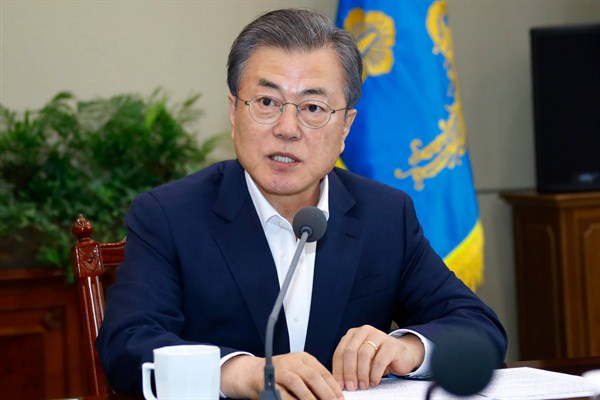In the aftermath of the failed summit meeting between U.S. President Donald Trump and North Korean leader Kim Jong Un in Hanoi in February, the task of resuscitating talks over Pyongyang’s nuclear weapons program has fallen to the man who brokered Trump and Kim’s historic first meeting in June 2018: South Korean President Moon Jae-in.
Moon’s willingness to again play the role of mediator is commendable, but he faces an uphill climb. The surprising breakdown of talks in Hanoi revealed nothing if not the extent to which the United States and North Korea misunderstand each other. U.S. negotiators understandably turned down Kim’s proposal that the most punishing economic sanctions on North Korea be lifted in exchange for only partial dismantling of its nuclear program, but Trump also overplayed his hand. According to a Reuters report last month, Trump called on Pyongyang to transfer its entire nuclear arsenal to the U.S., a position that has been advanced by his hawkish national security adviser, John Bolton. Many observers believe Bolton, who has long been skeptical of talks with North Korea, drafted the proposal knowing full well that it would likely torpedo the summit.
With Trump’s hopes for a “big deal” with North Korea increasingly unlikely, Moon visited the White House last week to sell Trump on what Seoul now calls a “good enough deal.” The trip caused Moon to miss an important ceremony in Seoul marking the centennial of the establishment of South Korea’s provisional government, which was set up in exile in China during Japan’s long occupation of the country. Missing that ceremony underscored the value Moon places on keeping the momentum going in the nuclear talks.

